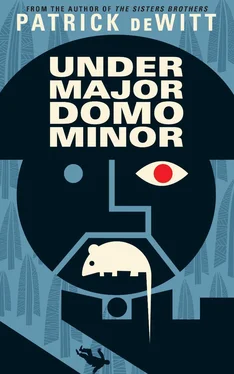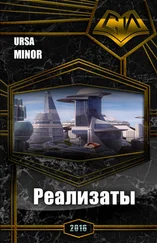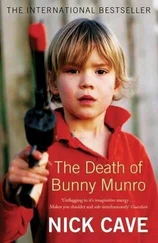When she faced him, he could see she had been crying. “Anyway, according to him we are.”
“I suppose I should offer you my congratulations, then.” He bowed. “A long and happy life to you both.”
She was wounded by this, and retreated a pace. Staring at the cape in his hands, she said, “Is that all you have to say to me, Lucy?”
He had hoped to communicate an appearance of cold control and indifference, but in looking at Klara’s face, and in knowing he had been bettered in love, then did his heart turn against him, and an expansive sorrow welled up in his chest. “Long life!” he said, and spun around, retreating for the castle, his face gone hot with tears. By the time he’d climbed the stairs to his room he had exhausted himself, and felt as though there were nothing inside him at all. Acting automatically, he pulled his valise from under his bed and packed his belongings, including Klara’s cape, and Mr Broom’s telescope. He pocketed Agnes’s coin before taking up pen and paper to compose a short farewell letter to her and Mr Olderglough. Leaving this atop his pillow, he scooped up Rose, gripped his valise, and descended the steps. Crossing the entryway, he saw the Baron had left a letter on the side table. Setting down his valise, he stared at it. He opened it up and read it.
Last night I took up a razor, that I might open my own throat with it. How simple this would be: a flick of the wrist and the life would pour from my body, the room would dim, and I would have my rest. I am not afraid to die, and have not been for some time now. And yet I found I couldn’t perform the gesture, knowing you are still drawing breath. If you yourself were passed, it would be nothing, but the knowledge that you remain lulled my hand. I will live until you come back to me, then. If you do not come back, then I will die waiting. This is my pledge to you.
Lucy recognized his taking solace in giving up; he was familiar with the comfort which existed in the acceptance of failure. In turning back from his own pain and fear, he had experienced some stripe of validation; for these feelings were justified, after all, and his leaving was necessary, and wise. Despite this, the Baron’s letter conjured in him a shame which eclipsed these other emotions, and so he did not strike out for the station, as planned, but removed the cape from his valise and walked back down the hill, and to the village. As he knocked on Klara’s door, he could feel his heartbeat in his hands. She answered; she was alone. He passed her the cape and told her, “You can’t marry Adolphus.”
Her face was so pale, and she looked at the cape with such superlative sadness.
“Why,” she asked.
“Because of the fact that I love you.”
Lucy said these words and he watched as Klara’s sadness drifted away, her eyes brightening in pulses, and now she was beguiling again. Stepping closer, she reached up and kissed Lucy on the mouth, lightly, and again, on the neck. She retreated into the shanty and Lucy followed after. He watched as she cast off her coat and put the cape on, standing before the mirror, as before, and admiring herself. “Yes, hello,” she said, “and who is this young lady? She looks so happy, doesn’t she? I wonder what’s got into her. Perhaps she’s heard some good news. Perhaps she’s heard just what she wanted to hear.” She was swivelling back and forth, smiling at herself. “Oh, but she does look happy, doesn’t she? Well, let’s see how long it lasts, shall we?”
The recent turn of events instilled in Lucy an unheralded emotion which he couldn’t at the start identify but which he eventually decided was euphoria. And it was in this state that he begot a plan or a strategy, one which he recognized as inspired but also humanely necessary, so that upon returning to his room the next white-lighted morning he threw himself into the task of realizing it, toiling with pen and paper for long hours until his hand was cramped and stiff, that he might get his words to sit just so.
Lucy wrote a letter to the Baroness Von Aux. He introduced himself, describing his position at the castle, and then imparted his opinion in respects to the mental state of the Baron. For, in spite of the dire and unmistakably darkened tone of the Baron’s letters, Lucy thought the Baroness was likely unaware of her husband’s true condition, and that, if she became conscious of it, and if she possessed any remnant of affection for the man, then she would surely respond in one manner or the other. Well, Lucy was no scholar, and had never before undertaken such a task as this, attempting to transform the fates of others using naked language alone. It was a tedious business, he decided, and he felt no envy of the learned men and women of the world for whom composition was their stock in trade. The following morning, upon rereading his work for the hundredth time, he declared the missive sound, and slipped it into the envelope alongside the Baron’s daily offering.
All the time he had been writing this letter, and as he set out to deliver it, Lucy was filled with a righteous feverishness; for he knew the deed was correct, and essential. But then something peculiar occurred, which was that the moment the letter was snatched from his hand, the moment his plan was enacted, and had ceased existing in thought alone, now he was visited by a premonition, presented as divine truth, which was that he had just made a significant and imminently consequential mistake. He stood on the platform awhile, wondering about this, becoming fearful of it. Once the train rolled out of sight, then did he push the feeling away, banishing it, for he had other and more pressing, pleasing considerations. Turning his back on the station, he struck out for the village. Smoke was pouring from Klara’s chimney. Lucy began to run.
The days were growing warmer, and Adolphus was away on his campaign. Lucy and Klara took hours-long afternoon walks through the forest, their fingers twining together. They spoke of small things; or of things which seemed small when spoken but which afterwards remained fixed in Lucy’s mind. One day Klara commented that when the snow melted away, the exposed grasses looked like the fur of a newborn foal or calf.
“But the earth is not an animal,” Lucy said.
“Yes it is,” Klara told him, and she gripped his fingers ever tighter.
Now Lucy was spending his nights in Klara’s bed. He found it in his ability to make her laugh, and this was so pleasing to him that he sometimes overdid it, and the next day she would complain of a tender stomach. Typically he awoke at dawn, while she and Memel still slept, and repaired to the castle. His suit had arrived from Listen, and his flesh was greatly contented as he eased into this dashing ensemble each morning.
Rose sometimes accompanied him on his rounds, but just as often she would loiter at the door of the shanty as he was leaving, and he knew this meant she wished to stay behind, to play with her brothers and sisters and mother. Whenever this happened, Lucy felt a mild betrayal; but Rose was too large to rest in his pocket any longer, and he knew he had to allot her a life apart from his own.
Upon completing his work, Lucy would change back into his old suit and sheepskin cap and return to the village. Some nights he and Klara would socialize with Memel and Mewe; some nights they were alone. Time passed in this way, and life was but one comfort after another. It was all so natural. Later, and Lucy would wonder how many days this phase had been made of.
A week of ceaseless rain, this followed by baking heat, and all at once it was spring, and the chirping insects trilled in the valley. Lucy and Klara lay in the tall grasses above the village. He was leaning back on his elbows, a sleepy expression on his face. Klara was curled at his side, watching the daffodils bowing to the ground when a bee would light upon them. She put her hand on Lucy’s bare stomach and he looked down at her.
Читать дальше












